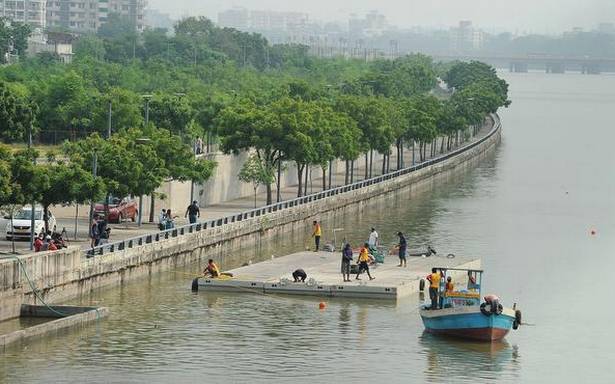Tired of inaction on the part of the experts in checking contamination of rivers in the state, the Gujarat High Court has now gone to us, the residents. The court has required a public development, saying rivers are our life savers and it is our aggregate liability to keep them clean.
The HC issued an order after it took suo motu cognisance of a report that highlighted how filthy water from Pirana Sewage Treatment Plant (STP) was discharged into the Sabarmati.
The court has called for outright cleaning of the Sabarmati and other rivers of the state by taking it up as a public movement. It has asked the Gujarat Pollution Control Board (GPCB) to conduct inspection of industries releasing effluents into the rivers while asking the AMC to provide its manpower for the purpose.
The court has asked the AMC to take stringent action against the erring industrial units by disconnecting their water, drainage and electricity connections. The court directed that the names of polluting industries be published in newspapers and the cost of publication be recovered from them.
The bench of Justice JB Pardiwala and Justice VD Nanavaty said, “This litigation is in public interest and should turn into a people’s movement. A decentralised approach involving every citizen is needed to save Gujarat’s rivers from pollution. We are saying so keeping in mind the ‘Public Trust Doctrine’.”
‘Rivers belong to all of us’
The bench said, “The State holds some resources in trust for the public and it should deter industries from soiling water bodies. It is sad to note that rivers are one common pool resource to pollute. In our Constitution, water resources are held in public trust. We have to use the ‘Public Trust Doctrine’ to apply stringent provisions against civic bodies not clamping down on polluting industries while holding such industries responsible.”
The court noted, “Rivers are our lifeline since we are completely dependent on them for our existence. The major reason behind this alarming situation is our utter ignorance and carefree attitude towards the environment. It is high time that we take some stringent actions. Each and every individual should understand that rivers belong to all of us. It is a joint responsibility of each and every individual to keep them clean.” The HC categorically told GPCB that there should be no discharge of untreated wastewater into the Sabarmati from either city or any part of the district.
As per the court order, the inspection shall be carried out industry wise as well as in industrial estates. The inspection of each industrial unit/establishment shall be undertaken by the GPCB along with the members of the Joint Task Force (JTF), which was appointed by the court. In the course of such inspections, the inspecting agency shall specifically check the discharge points of the industrial effluents, the efficient functioning of the ETPs/CETPs.
The court said, “The JTF members shall hold a meeting with all the associations and organisations running the existing CETPs. They shall be made aware that in the event they fail to overhaul, update and maintain its existing CETP at its optimum level, such CETP shall be shut down until the source of release of the untreated effluent is detected.
The court noted, “Even if one of the members of a particular association/organisation is found guilty, all the members shall have to pay the price for the same.”
The AMC shall disconnect the water and the drainage connections of erring industrial units which release partially treated or untreated wastewater. No reconnection shall be granted unless approved by the GPCB. The court also suggested installation of CCTV cameras and Supervisory Control and Data Acquisition (SCADA) systems at ETPs and CETPS.



